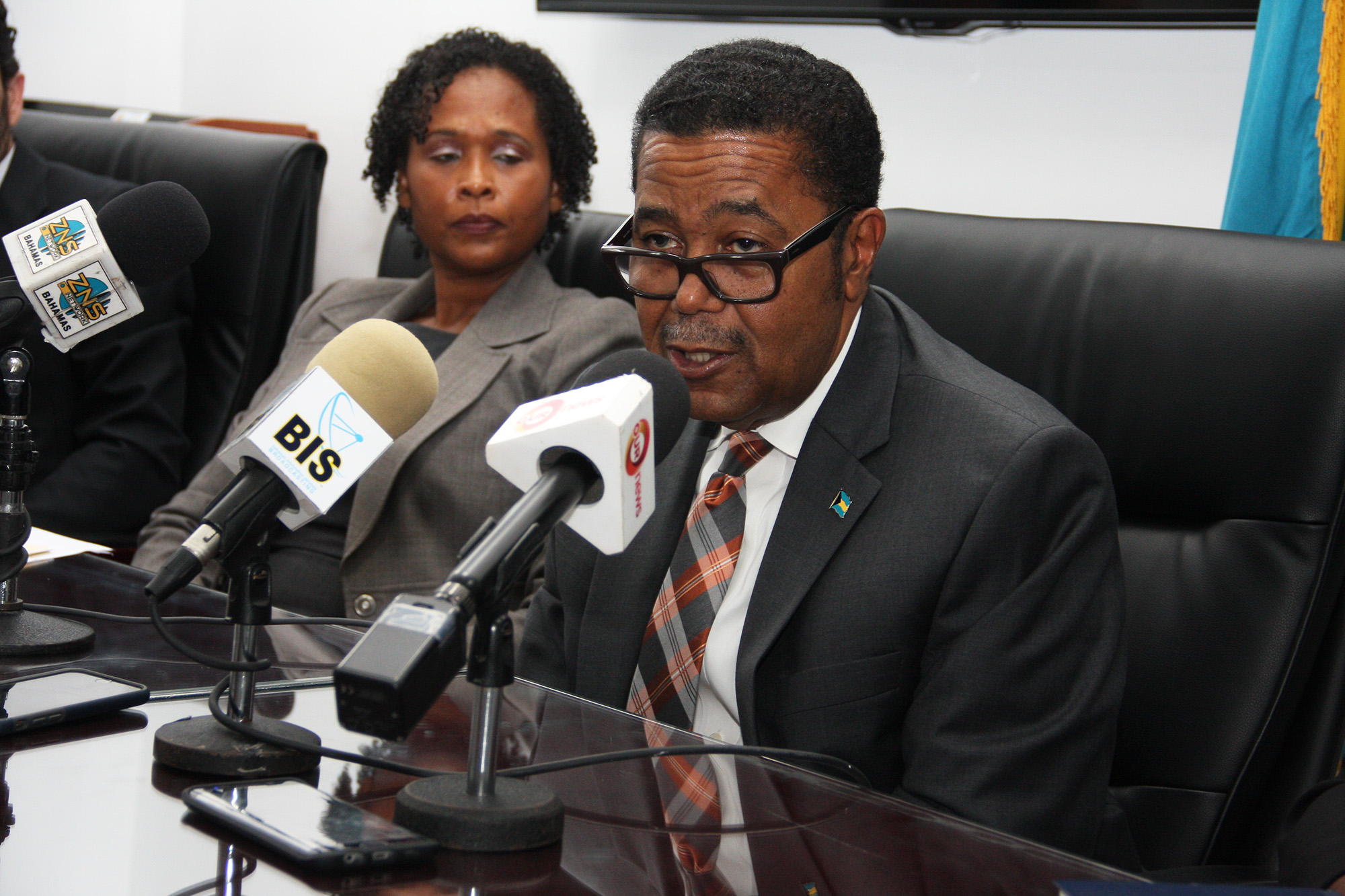
 A travel advisory is expected to be issued to persons travelling to The Bahamas after health officials confirmed three new additional cases of the Zika virus – bringing the total to four cases.
A travel advisory is expected to be issued to persons travelling to The Bahamas after health officials confirmed three new additional cases of the Zika virus – bringing the total to four cases.
Minister of Health Dr. Perry Gomez addressed reporters yesterday at a press conference at the Ministry of Health and said he feels the advisory is “slightly unfair”.
“This is an enormous challenge to The Bahamas in particular at this moment, primarily New Providence, I was informed this morning that there is going to be a travel advisory issued against The Bahamas,” he said.
“I thought it was a bit unfair to say The Bahamas because we’ve only had Zika in New Providence. We are an archipelago of 130 uninhabited islands and it’s not scientific to say the entire Bahamas at this moment in time,” Dr. Gomez said.
With so much being unknown in regards to the disease, Director of Public Health Dr. Pearl McMillan gave further details of the confirmed and suspected cases.
Officials say so far there have 83 suspected cases, and of that number there are eight pregnant women who are in their first trimester of pregnancy.
“We’re continuing to monitor these women. Based on our case definition with the 83 suspect cases we will take samples and they will be taken and sent off to our reference lab,” Dr. McMillian said.
“Based on the review and the history and all the information we send out with each sample, the lab may not test every case and once they get a confirmed case of course they will then send that back to us and notify us of a confirmed case. All of our confirmed cases are from New Providence but we have received samples from the Family Islands.”
Dr. McMillan added that the turnaround for results is normally between is between one to two weeks.
Dr. Percival McNeil, a consultant for the Ministry of Health, added that sexual transmission aspect of the disease is sometimes forgotten but sexual prevention is vital.
“We need to prevent the ongoing transmission of Zika and this is going to involve bite prevention and sexual transmission. We want to emphasize that 80 per cent of people have no symptoms at all so the sexual route is wide open for transmission of the disease,” he said.
“There is special emphasis on pregnant women. We want them to register at the earliest possible time with their health care provider and to be followed closely throughout the entire pregnancy.”
From an environmental standpoint, fogging is a major part of the fight against Zika and the Aedes aegypti mosquito.
However, Assistant Director of Environmental Health Andrew Thompson said that responsibility is also the public in keeping their areas clean in order to prevent the spread of the disease.
“It’s really the public at large that have to manage their environment. Additionally, we have intensified fogging application but it has to be an integrated thing. People love to rely on the fogging, but you can’t just rely on it. It is simply additional assistance that is there for them. Really and truly, the public, the community, the individual should be more proactive along with the relevant government agencies in this process,” Mr. Thompson said.
Mr. Thompson added that the fogging process takes place almost daily and efforts have intensified in areas called “localities” which are essentially the “hot spots” for the mosquitoes.


